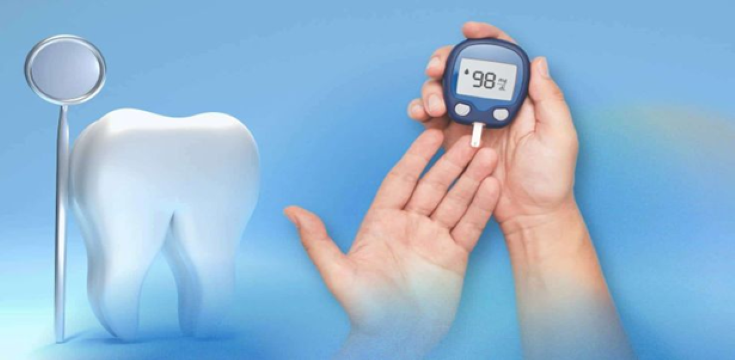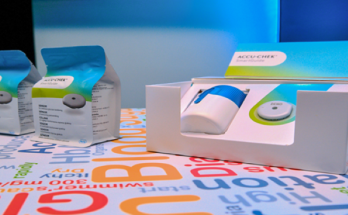People with diabetes face higher risks of gum disease and cavities. Poor oral health can complicate blood sugar control. Prioritising oral health is essential when you have diabetes. This practical guide to living healthier with diabetes outlines an oral care regimen that can help prevent common complications and maintain your oral health.
If you, or someone you care for, has diabetes, you may already know that the condition increases your risk of gum disease and other oral health problems. What’s less well known is that gum disease can also make it harder to control blood sugar levels and may even increase your risk of developing type 2 diabetes, creating a powerful two-way relationship between oral health and diabetes.
That’s why your dentist and oral hygienist are important members of your diabetes care team. Proactive oral hygiene can help lower your risk of developing diabetes and make it easier to manage the condition if you already have it.
What is Diabetes?
Diabetes is a chronic condition that affects how your body processes sugar (glucose). There are two main types: type 1 and the more common type 2 diabetes. Worldwide, diabetes is rising sharply, and in South Africa, it’s estimated that 12.9% of adults live with diabetes, and many remain undiagnosed.
How Inflammation Links Oral And Systemic Health
Inflammation is the body’s natural response to infection or injury, but when it becomes chronic, it can damage healthy tissues. Gum disease triggers ongoing inflammation in the mouth that doesn’t just stay local; it can spread through the bloodstream, affecting other organs and contributing to systemic inflammation.
This is particularly concerning for people with diabetes, as inflammation worsens insulin resistance, making blood sugar harder to control. In turn, high blood sugar fuels further inflammation in the gums, creating a harmful cycle. Managing inflammation through effective oral care and good blood sugar control is one of the best ways to protect both your mouth and the rest of your body.
Diabetes & Oral Health
Research shows a clear two-way link between diabetes and gum disease. When blood sugar levels are high, more glucose circulates in the saliva, creating an ideal environment for bacteria to grow. This increases the risk of bleeding gums, cavities, gum disease, and bad breath. Additionally, about 40% of people with diabetes experience dry mouth, or xerostomia, which further raises the risk of decay and infection.
People with diabetes often have a reduced ability to fight infection and slower healing, both of which can make gum problems worse. On the other hand, gum disease can make blood sugar levels harder to manage, increasing the risk of diabetes-related complications.
Diabetes & Your Dental Professional
Good oral health is part of good diabetes management. Once diagnosed, see your dentist as soon as possible and share your medical history, including any medications you have and are currently taking. “Oral health is closely linked to blood sugar control,” explains Dirna Grobbelaar, Oral Hygiene Advisor for Ivohealth. “By taking care of your teeth and gums, you’re also supporting your overall health. It’s all connected, and prevention truly is the best approach.”
Regular check-ups and professional cleanings (at least twice a year) allow your dental team to detect issues early and remove plaque or tartar that home brushing can’t reach. Keep your doctor updated on your oral health, especially before any dental surgery. If your blood sugar is not well controlled, your dentist may delay procedures such as periodontal or implant surgery until your glucose levels are stabilised.
Optimal Oral Care For Diabetes
A healthy mouth supports a healthy body. Here’s a simple daily routine to protect your oral health and overall well-being:
Brush
Brush at least twice a day for two full minutes, reaching along and under the gumline, using a brush like the GUM PRO and Sensitive PRO with tapered bristles and ergonomic quad grip, helping guide the more effective, healthier Bass Brushing technique (bristles at 45 degrees).
- Use a soft-bristled brush for gentle, effective cleaning.
- Try a quality electric toothbrush like Oclean for a superior clean with minimal effort.
- Choose a mild or natural toothpaste, such as Olgani Naturals, to protect sensitive tissues.
- Clean in-between
- Floss or clean between your teeth every day.
- If flossing is tricky, use an interdental brush like the GUM Trav-lers or GUM Soft-Picks.
- Not sure which interdental is right for you? Your oral hygienist can advise.
Rinse
Rinse after eating and before bed with an alcohol-free mouthwash such as GUM SensiVital, GUM Bio, Dentyl Active, or Thryve – alcohol can worsen dry mouth.
Dry Mouth
Dry mouth affects over 40% of people with diabetes. A lack of saliva makes it harder to chew, swallow, and speak, and because saliva helps protect teeth, a dry mouth can quickly lead to plaque build-up, bad breath, and tooth decay. The priority is rehydration. Sip water regularly and chew sugar-free gum to stimulate saliva. Products like GUM Hydral are designed specifically to moisturise and soothe oral tissues.
Extra Self-Care Tips For People With Diabetes
- Monitor blood sugar closely: Maintaining stable glucose levels reduces your risk of gum problems.
- Eat a balanced diet: Choose nutrient-rich foods, limit refined sugars, and drink plenty of water.
- Quit smoking: Tobacco use worsens both diabetes and gum disease.
- Check your mouth daily: Look for bleeding, swelling, white patches, or persistent bad breath, and report any changes to your dentist.
- Stay consistent: Daily care and regular dental visits can significantly reduce complications.
Diabetes and gum disease feed into each other through inflammation and infection. You can break the cycle by:
- Keeping blood sugar within target range
- Practising daily plaque control (brush, clean, rinse)
- Seeing your dentist and doctor regularly
- Managing inflammation through a healthy diet, hydration, and stress control
A healthier mouth helps support better blood sugar balance, and vice versa.




